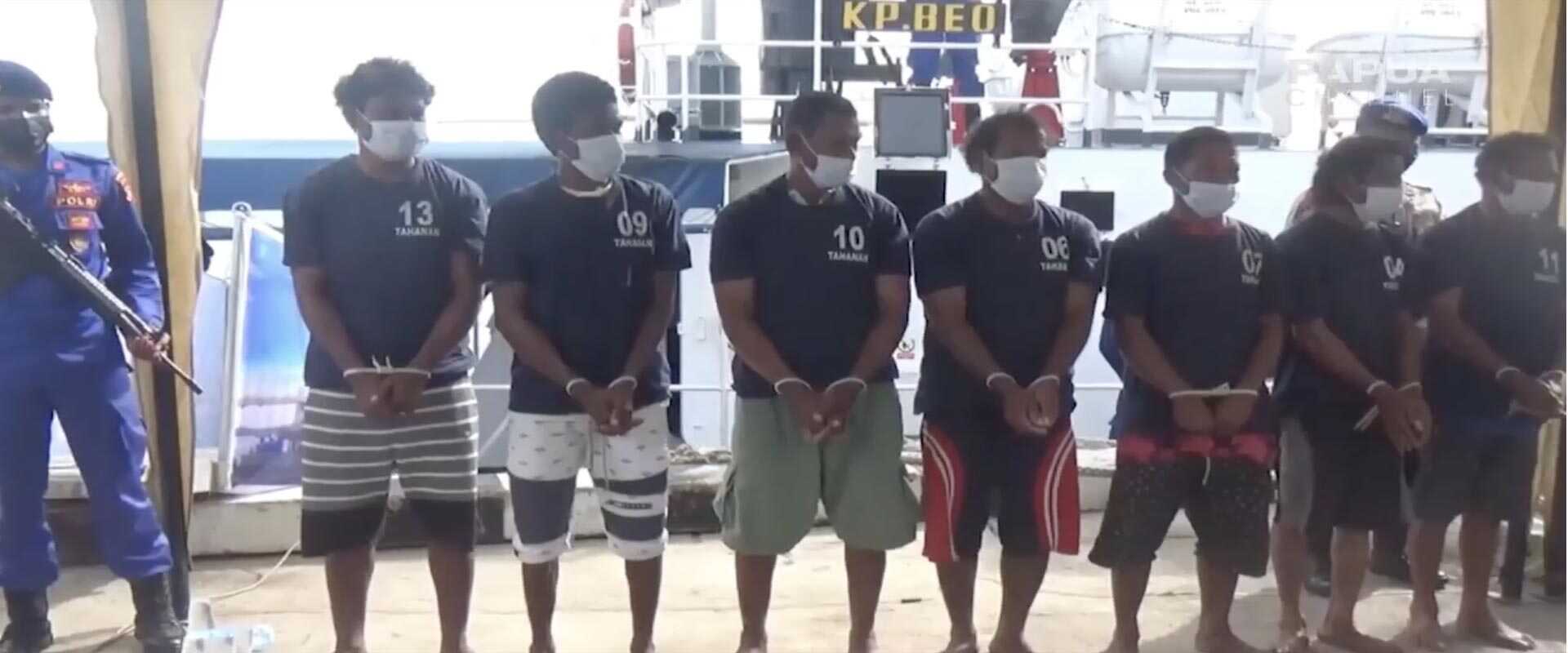Bomb-Fishermen arrested in RAJA AMPAT face up to 20 years in jail
According to various sources at least seven “bomb” fishermen were arrested on July 30 (2022) in the Sele Strait in the Sorong Regency. The Sele Strait lies between the island of Salawati and mainland West Papua. The fishermen were all from Buaya (Crocodile) Island, which lies very near to Sorong, the gateway to RAJA AMPAT. This island is infamous for being the “home” of migrant bomb fishermen originally from Sulawesi Island.
An official statement says they were caught “red-handed” and in the process of detonating a series of bombs. This is by no means the first group of bomb fisherman apprehended who reside on this island. These are seasoned outlaws who are adept at deceiving the authorities. Based on past seizures, they have learned to keep their bomb materials in various stashes to avoid being arrested.
FYI:
Fish bombs are simply made from readily available materials. This illegal and highly destructive fishing practice is variously known as Fish Bombing, Blast Fishing, or Dynamite Fishing. The method uses explosives to stun or kill fish for easy collection. While making fishing easier, the practice is extremely destructive to the surrounding ecosystem as explosions often destroy the underlying habitat (coral reefs) that support the fish. Additionally the frequently improvised nature of the explosives used, along with undetonated charges, means danger for fishermen and divers alike, with accidents and injuries being routinely reported.
The bombs, originally made from dynamite left over from WWII, now employ easily accessed and legal agricultural fertilizer (potassium nitrate or ammonium nitrate) layered with kerosene in discarded Bintang (beer) bottles and with a home-made detonator.
Researchers believe that destructive fishing practices like bomb fishing are one of the biggest threats to the coral reef ecosystems and a major cause of coral reef degradation. Blown up coral reefs are rendered no more than unstable rubble fields. The long-term impact is that there is no natural recovery of the reefs. Without a healthy reef, fish can no longer thrive.
The bottom line is that fish bombing impoverishes the reef and its residents as well as the local population that depends on a healthy ecosystem for its survival.
According to news reports, as the patrol boat approached the fishermen they tried to dump several bombs overboard. On boarding the fishing boat, officials found 47 packets of explosives, a dive compressor and dive gear. This equipment along with their boat and its two 40 horsepower engines were confiscated.
The fishermen are being held and are charged with violating two Indonesian laws. One older law carries a maximum sentence of up to 20 years is prison, while a newer one carries a maximum of 6 years of imprisonment and a fine of USD $80,000.
Authorities state these were “veteran” bombers from the aforementioned Buaya Island. In January of this year (2022) another 5 bomb fisherman were apprehended.
We will keep you informed on the results of the trial.
Note: These fishermen certainly know that blast fishing is illegal, but they still chose to do it – apparently because the financial rewards are calculated to be worth the risk of arrest. It is heartening to see the strong efforts of the Sorong-based water police in countering this scourge – more arrests like this and the one in January will help stop this horrific practice….at least in Raja Ampat…
For those who are interested here are some links to reports from various Indonesian news sources. All videos are in Indonesia’s native language Bahasa Indonesia. The first two related to the July (2022) arrest. The third is from a report on the January (2022) arrest. All fishermen are from the same island, Buaya!
This is the second report on the July capture
https://www.facebook.com/watch/?extid=WA-UNK-UNK-UNK-AN_GK0T-GK1C-GK2C&v=385269593715354
This link is from a report of the January (2022) arrests;





































